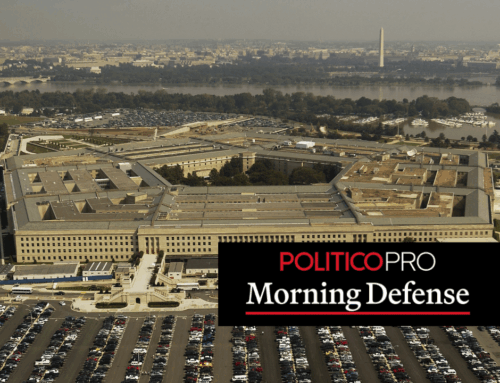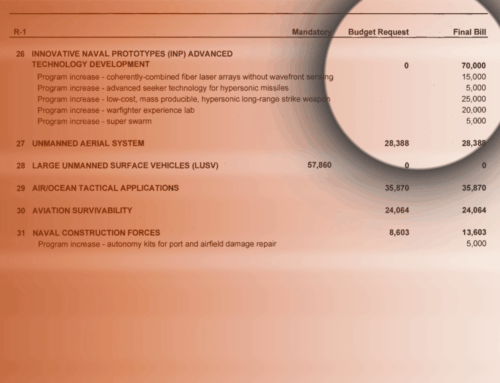August 24, 2015
|
The Honorable Roy Blunt The Honorable Candice Miller The Honorable Gregg Harper |
The Honorable Charles Schumer Chairman The Honorable Bob Brady Ranking Member |
Dear Chairman Blunt, Chairman Miller, Ranking Member Schumer, Ranking Member Brady, and Vice Chairman Harper:
We write in support of expanded public access to Congressional Research Service (CRS) reports. Longstanding congressional policy allows Members and committees to use their websites to disseminate CRS products to the public, although CRS itself may not engage in direct public dissemination. This results in a disheartening inequity. Insiders with Capitol Hill connections can easily obtain CRS reports from any of the 20,000 congressional staffers and well-resourced groups can pay for access from subscription services. However, members of the public can access only a small subset of CRS reports that are posted on an assortment of not-for-profit websites on an intermittent basis. Now is the time for a systematic solution that provides timely, comprehensive free public access to and preservation of non-confidential reports while protecting confidential communications between CRS and Members and committees of Congress.
CRS reports—not to be confused with confidential CRS memoranda and other products—play a critical role in our legislative process by informing lawmakers and staff about the important issues of the day. The public should have the same access to information. In 2014 CRS completed over 1,000 new reports and updated over 2,500 existing products. (CRS also produced nearly 3,000 confidential memoranda.)
Our interest in free public access to non-confidential CRS reports illustrates the esteem in which the agency is held. CRS reports are regularly requested by members of the public and are frequently cited by the courts and the media. For example, over the last decade CRS reports were cited in 190 federal court opinions, including 64 at the appellate level. Over the same time period, CRS reports were cited 67 times in the Washington Post and 45 times the New York Times. CRS reports often are published in the record of legislative proceedings. Taxpayers provide more than $100 million annually in support of CRS, and yet members of the public often must look to private companies for consistent access. Some citizens are priced out of these services, resulting in inequitable access to information about government activity that is produced at public expense.
In fact, while CRS generates a list of all the reports it has issued over the previous year, it silently redacts that information from the public-facing version of its annual report, making it difficult for the public to even know the scope of CRS products they could obtain from Congress. A Google search returned over 27,000 reports including 4,260 hosted on .gov domains, but there is no way to know if those documents are up to date, what might be missing, or when they might disappear from view.
Comprehensive free public access to non-confidential CRS reports would place the reports in line with publications by other legislative support agencies in the United States and around the globe. The Government Accountability Office, the Congressional Budget Office, the Law Library of Congress, and 85% of G-20 countries whose parliaments have subject matter experts routinely make reports available to the public.
We hasten to emphasize that we are not calling for public access to CRS products that should be kept confidential or are distributed only to a small network on Capitol Hill. Memoranda produced at the request of a Member or committee and provided to an office in direct response to a request should remain confidential unless the office itself chooses to release the report. By comparison, we believe no such protection should attach to reports typically published on CRS’ internal website or otherwise widely disseminated.
We value the work of CRS and in no way wish to impede its ability to serve Congress. CRS reports already undergo multiple levels of administrative review to ensure they are accurate, non-partisan, balanced, and well-written. Authors of every CRS product are aware of the likelihood that reports will become publicly available.
We do not make a specific recommendation on who should comprehensively publish non-confidential CRS reports online, although the approaches outlined in H. Res. 34 (114th Congress) and S. Res. 118 (111th Congress) are reasonable. The Clerk of the House, the Secretary of the Senate, the Government Publishing Office (GPO), the Library of Congress and libraries in the Federal Depository Library Program (FDLP) are all reasonable places for the public to gain access to these documents. Even bulk publication on GPO’s website would be a major step forward.
We ask only that all non-confidential reports be published as they are released, updated, or withdrawn; that they be published in their full, final form; that they are freely downloadable individually and in bulk; and that they be accompanied by an index or metadata that includes the report ID, the date issued/updated, the report name, a hyperlink to the report, the division that produced the report, and possibly the report author(s) as well.
In the attached appendix we briefly address concerns often raised by CRS regarding public access to reports. In doing so, we note that many committees, including the Senate Rules Committee, have published CRS reports on their websites. Also, that many CRS reports are available through third parties. We urge you to give great weight to the significant public benefit that would result from comprehensive, timely access.
We welcome the opportunity to further discuss implementing systematic public access to non-confidential CRS reports. Please contact Daniel Schuman, Demand Progress policy director, at daniel@demandprogress.org, or Kevin Kosar, R Street Institute senior fellow and governance director, at kkosar@rstreet.org. Thank you for your thoughtful consideration of this matter.
With best regards,
|
American Association of Law Libraries Amy Spare |
Free Government Information Brandon Burnette, Southeastern Oklahoma State University |
* individual affiliations listed for informational purposes only
cc: Members of House Committee on Administration, Members of Senate Rules Committee
Appendix
CRS has raised concerns with public access to CRS reports over the last few decades. This appendix summarizes the concerns most frequently raised by CRS and possible means to address those issues, should it be necessary. 1
When reviewing CRS’ concerns, four points are worth keeping in mind.
- CRS’ concerns often center around CRS itself making the reports available to the public. Current proposals would place publishing responsibilities with another entity.
- CRS’ concerns often conflate public access to CRS reports that are generally available to Congress with public access to confidential memoranda and advice. No legislative proposal calls for public access to confidential memoranda.
- CRS’ stated concerns also do not identify how CRS’ posture would be adversely affected as compared to the status quo, as Members and committees routinely make reports available to the public and many reports are hosted on third party websites.
- CRS has not addressed the benefits to making reports available to the public. 2
Copyright
In circumstances where a CRS report contains material copyrighted by a third party, CRS has raised the concern that congressional release of CRS reports online may implicate copyright’s fair use doctrine and “liability could attach” to the re-publication. As many CRS reports already are released to the public by Congress and the Senate has encouraged Members and committees to publish the reports online, the theory under which additional liability would arise is unsupported. However, the publication of a disclaimer on each report, similar to that used by the Government Accountability Office, should address any lingering concerns. Here is that language:
- This is a work of the U.S. government and is not subject to copyright protection in the United States. The published product may be reproduced and distributed in its entirety without further permission from GAO. However, because this work may contain copyrighted images or other material, permission from the copyright holder may be necessary if you wish to reproduce this material separately.
Constituent Communications
CRS has argued online publication of the reports “might lead CRS to be seen as speaking for Congress, thereby potentially threatening the dialogue on policy issues between Members and those they represent.” As many CRS reports already are released to the public by Congress, the Senate has encouraged Members and committees to publish the reports online, and many third parties are publishing the reports online, it is difficult to imagine that a central congressional point of publication would lead additional people to conclude CRS is speaking for Congress.
For the sake of clarity, the central website on which the reports are published could briefly explain the role of CRS in plain language, drawing from its authorizing language in 2 U.S.C. § 166 or from the Library of Congress’s CRS webpage. That webpage describes CRS as follows:
- The Congressional Research Service (CRS) serves as shared staff to congressional committees and Members of Congress. CRS experts assist at every stage of the legislative process — from the early considerations that precede bill drafting, through committee hearings and floor debate, to the oversight of enacted laws and various agency activities.
- CRS approaches complex topics from a variety of perspectives and examines all sides of an issue. Staff members analyze current policies and present the impact of proposed policy alternatives. Similar language could be inserted into the reports as well.
CRS Mission and Partisan Perspectives
CRS raises the concern its mission would change because of widespread public access to the reports. Specifically, “analysts [may] become more conscious of the need to address views, methods, disciplines, and expectations of a non-congressional audience,” and CRS would need to respond to the public should there be a “reaction” to reports on “controversial topics.” Additionally, it would “increase partisan and special interest pressure on CRS as groups and individuals try to influence the research and analysis,” leading the public to contact CRS analysts.
As CRS reports already are widely—but unevenly—accessible to the public and the subject of high profile news stories, equitable access to all reports is unlikely to adversely affect current circumstances. However, because updated CRS reports are not always widely and quickly disseminated, current publication practices create a risk that inaccurate CRS reports that are later updated will continue to circulate to the public in an uncorrected form.
CRS has not identified a diminution in report quality over the last decade, even with widespread but uneven public access that it believes could create additional partisan and special interest pressure. However, as Congress has a vested interest in the content of the reports, it is a much more significant source of partisan pressure than the public. Additionally, CRS has a four-level review process that aims to produce research reports and products that are of interest to Congress and free from any bias in tone or substance.
Confidential Memoranda
CRS argues the release of non-confidential reports would cause it to decrease the number of reports and increase the number of confidential memoranda, thereby triggering an effort to provide the public access to confidential memoranda that, if successful, would “irrevocably alter” the mission and focus of CRS. This “slippery slope” argument is not responsive to the question of public access to CRS reports. Members of Congress and committees are capable of making the decision of which confidential memoranda should be released to the public.
Public Engagement
CRS raises the concern that public access to reports will increase inquiries to CRS, either directly or through Member offices, to which it must respond. No one is proposing CRS directly respond to constituents. However, it already is congressional policy that any Member of Congress or committee may publish reports online, with the Senate encouraging Members and committees to do so. Should a Member office deem it appropriate for CRS to respond to an inquiry, that responsiveness to Congress is CRS’ raison d’etre. Moreover, public availability of the reports may decrease inquiries to Member offices asking for the most up-to-date version of a report.
In addition, CRS argues that widespread public access to CRS report will increase agency costs through an “increase in the volume of tailored individual requests for Members and committees, the establishment of a Public Affairs-type Office to oversee the dissemination of products, and the hiring of additional staff to edit work intended for public distribution.”
First, the decision to write a report or confidential memo for the most part is in the hands of each analyst. As a result, there is no reason to conclude the volume of tailored individual requests would be affected. With widespread but uneven online public access, any shift in publication format would already have taken place. Second, a public affairs-type office is unnecessary because no one suggests CRS should respond directly to constituent requests. Finally, it already is expected by CRS that any of its products may end up in the hands of the public. This is why, in part, there is a multi-stage review process for all reports and research products. CRS should not change its current practices regarding writing reports, and additional staff to address publication are unnecessary.
Authorial Information
CRS suggests it will need to remove the name of the author and contact information from CRS reports. Again, many CRS reports already are released to the public by Congress and the Senate has encouraged Members and committees to publish the reports online. Additionally, the agency itself not long ago crafted CRS mirror websites that would display copies of CRS reports on Members’ personal webpages.
As a matter of practice, CRS already removes the name of authors for reports it determines may create a safety risk for its author. There is no public indication that the work of CRS analysts has been impeded by communications from the public on reports that already are publicly available.
External correspondents can help CRS analysts identify flaws in reports and provide useful context. However, to the extent unrequested communications adversely impact CRS’ work, contact information could be removed from the reports with ease. Rather than list the author’s 5 digit phone extension and e-mail address, a CRS report could carry a hyperlink to the researcher’s Congress-only web page at CRS.gov.
Loss of Speech or Debate Protection and Confidentiality
CRS raises the concern that public access to CRS reports could weaken analyst protection under the Speech or Debate clause of the Constitution; the loss of that protection may result in CRS analysts being “required to testify about the advice they provide to Congress.” As many CRS reports already are released to the public by Congress and the Senate has encouraged Members and committees to publish the reports online, there is little reason to conclude CRS’ posture would be adversely affected.
Former Counsel for the House of Representatives Stan Brand called CRS’s concerns “unfounded,” and in a memo 3 on Senate legislation that would have required the Secretary of the Senate to publish online CRS reports, wrote, “I believe that the concerns expressed in the CRS memorandum are either overstated, or the extent they are not, provide no basis for arguing that protection of CRS works will be weakened by [Senator Lieberman and McCain’s] bill.” He recommended:
- In an abundance of caution, and to address CRS' concerns, you might consider adding the following language to the bill: “Nothing herein shall be deemed or considered to diminish, qualify, condition, waive or otherwise affect applicability of the constitution's Speech or Debate Clause, or any other privilege available to Congress, its agencies or their employees, to any CRS product made available on the Internet under this bill.”
Congress has been distributing CRS’s reports to the public (often in the form of committee prints) since the 1970s. CRS even used to compile a list of CRS reports in the public domain. Nevertheless, no analyst has been hauled into court and forced to testify about his or her work for Congress.
1 See, e.g., Discussion of the Implications of Director Public Access to CRS Reports (May 28, 2009); Considerations Arising from the Public Dissemination of CRS Products (April 2005); Congressional Policy Concerning The Distribution of Written CRS Products to the Public (March 9, 1999).
2 CRS itself has demonstrated interest in the public release of its work by Congress recently. In 2014, the agency approached Congress and asked it to publish as a committee print a 500-page collection of reports titled The Evolving Congress. The Senate Committee on Rules and administration obliged CRS. See http://www.gpo.gov/fdsys/pkg/CPRT-113SPRT89394/pdf/CPRT-113SPRT89394.pdf. In addition, CRS policy allows the agency to directly provide reports to executive and judiciary offices and employees, state and local government officials, members of the media and foreign embassies upon request, and sometimes research divisions will provide reports to the public upon request. In the 1980s, the CRS Review—a digest of CRS policy research and analysis—was distributed to Congress and made available to the public through GPO.
3 http://pogoarchives.org/m/gp/gp-Brand-1998-2001.pdf










